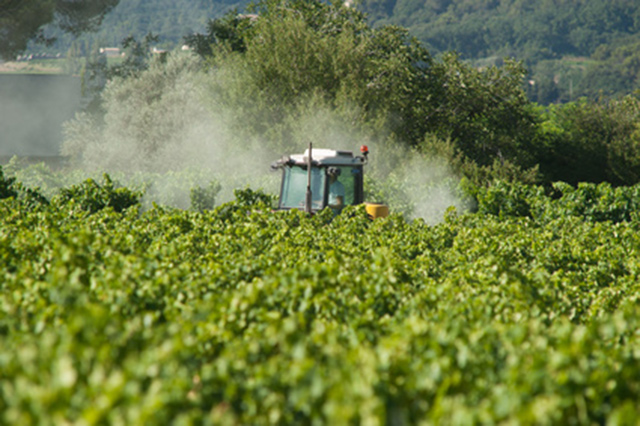The most commonly used weed-killing spray Roundup is “probably carcinogenic to humans,” according to a recent statement from the World Health Organization (WHO) and the International Agency for Research on Cancer (IARC).
Glyphosate, one of the chemicals in Roundup is believed to be responsible for the pesticide’s possible carcinogenicity.
This statement comes after the results of a study published in The Lancet: Oncology, in which 17 experts from 11 countries met at the IARC facility to analyze the carcinogenicity of common pesticides. They found that glyphosate had potential carcinogen properties.
Previous research from the IARC also showed a strong link between exposure to pesticides and non-Hodgkin lymphoma, which is a cancer of the blood.
Because of WHO’s announcement, the Environmental Working Group (EWG) has now called on the U.S. Food and Drug Administration (FDA) to require mandatory GMO labeling.
“The widespread adoption of GMO corn and soybeans has led to an explosion in the use of glyphosate – a main ingredient in Monsanto’s Roundup and Dow’s Enlist Duo,” said Ken Cook, president and co-founder of EWG. “Consumers have the right to know how their food is grown and whether their food dollars are driving up the use of a probable carcinogen.”
Glyphosate is believed to be very present in foods such as genetically modified corn and soy. According to Charles Benbrook, Ph.D., of Washington State University, in 2014 U.S. farmers used the equivalent of three-quarters a pound of glyphosate per acre of farmland. “When a single pesticide is used that widely, people can’t help but be exposed to it,” Benbrook explains.
According to ConsumerReports.org, a small USDA study found “glyphosate residues on about 90 percent of 300 soybean samples.”
Public safety groups are now urging the Environmental Protection Agency to reevaluate the safety of glyphosate use on crops.
Note: None of the information in our website is intended to diagnose, treat, cure or prevent any illness or disease. The content on our website is for educational purposes only.
DON’T FORGET to sign up for our weekly newsletter to get our latest articles, updates, free recipes and giveaways.
Organic foods reduce pesticide exposure.
Common pesticide increases ADHD risk.
Organic food has more nutrition and less pesticides.
For top 10 foods you must eat organic.
For the truth behind 8 foods to avoid at the supermarket.
REFERENCES:
1. “Carcinogenicity of Tetrachlorvinphos, Parathion, Malathion, Diazinon, and Glyphosate.” The Lancet Oncology. The Lancet Oncology, 20 Mar. 2015. Web. 21 Mar. 2015.
2. “Monsanto Weed Killer Can ‘probably’ Cause Cancer: World Health Organization.” Reuters. Thomson Reuters, 20 Mar. 2015. Web. 21 Mar. 2015.
3. “World Health Organization Labels Glyphosate Probable Carcinogen.” Environmental Working Group. Environmental Working Group, 20 Mar. 2015. Web. 21 Mar. 2015.
4. “Study: Glyphosate Doubles Risk of Lymphoma.” Environmental Working Group. Environmental Working Group, 23 May 2014. Web. 21 Mar. 2015.
5. “Non-Hodgkin Lymphoma and Occupational Exposure to Agricultural Pesticide Chemical Groups and Active Ingredients: A Systematic Review and Meta-analysis.” National Center for Biotechnology Information. International Journal of Environmental Research and Public Health, 23 Apr. 2014. Web. 21 Mar. 2015.
6. “Glyphosate in Your Diet.” Consumer Reports. Consumer Reports, 19 Mar. 2015. Web. 21 Mar. 2015.
7. “Evaluation of Five Organophosphate Insecticides and Herbicides.” IARC Monographs 112 (2015): n. pag. International Agency for Research on Cancer. World Health Organization, 20 Mar. 2015. Web. 21 Mar. 2015.

















